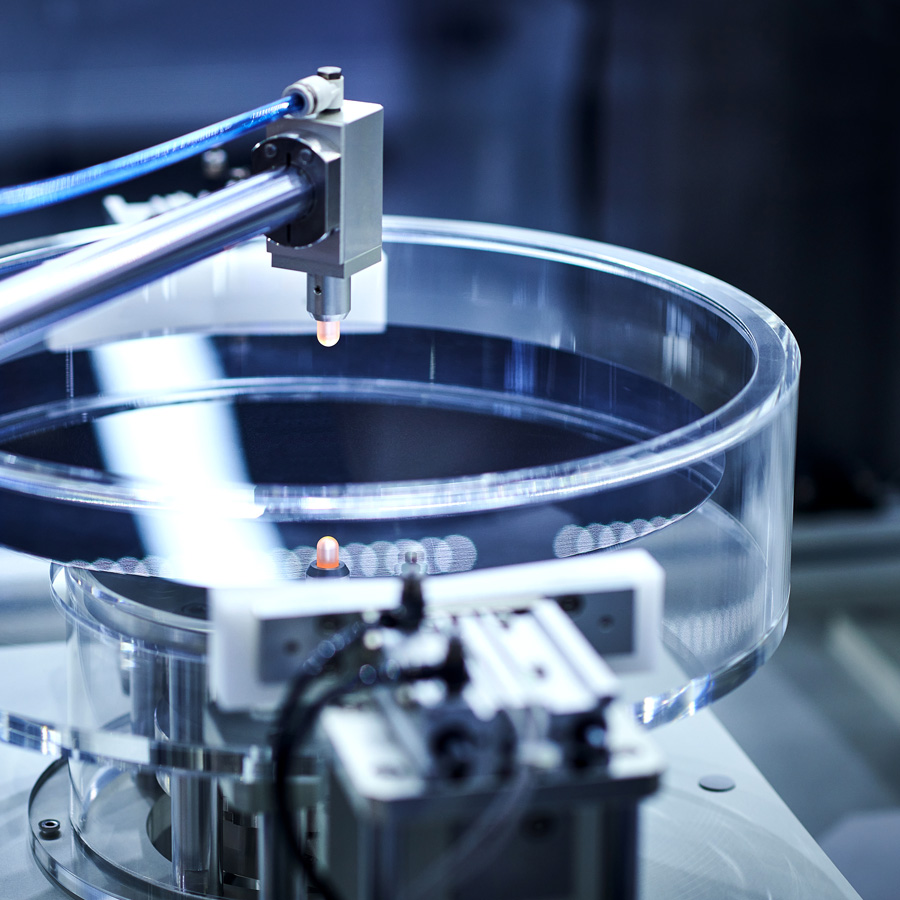Outstanding cleanrooms for photonics and quantum technologies
This subject area benefits from the excellent clean room infrastructure and the use of photonic systems in various applications at the large-scale research facilities. The ETHZ-PSI Quantum Computing Hub creates an excellent synergy between basic research at ETH and hardware development at PSI, which is internationally competitive.
The new Swiss PIC technology transfer centre will promote the transfer of know-how from research to industry in these two areas. One example is the packaging of micro-optical systems.

Photonics is a core competence of research at the Paul Scherrer Institute PSI.
With its large-scale research facilities, including the Swiss Light Source (SLS), one of the most modern light sources, as well as the Swiss Free Electron Laser (SwissFEL) and other laser technologies, the Institute is a leader in the development of applications and solutions in the field of photonics.
The following laboratories are affiliated to the PSI Photon Science Department (PSD):
- Laboratory for Macromolecules and Bio-Imaging (LSB)
- Laboratory for X-ray Nanosciences and Technologies (LXN)
- Laboratory for Condensed Matter (LSC)
- Laboratory for Synchrotron Radiation and Femtochemistry (LSF)
- Laboratory for Advanced Spectroscopy and X-ray Sources (LSX)
- Laboratory for Nano and Quantum Technologies (LNQ)
- Laboratory for Nonlinear Optics (LNO)
The detector groups at PSI are developing some of the world's leading detector technologies, including the development of novel sensor materials and the design of chips, electronic interfaces and associated data acquisition hardware. The systems developed by the X-ray detector group, for example, enable data acquisition from single photon events up to data streams of terabytes per second. Some of these developments formed the basis technologies of the well-known PSI spin-off Dectris AG.
Areas in which PSI offers world-class solutions and prototyping capabilities include:
- Accelerators
- Lasers and interferometers
- EUV, electron and laser lithography
- Production of microlenses and generation of 3D nanostructures for photon manipulation
- Micro- and nano-machining processes by deposition, etching, printing
In order to operate such machines and ground-breaking devices, PSI scientists regularly need innovative systems and new software. For this reason, a competence centre has been set up at PSI for the control and monitoring, data acquisition, development and maintenance of hardware, firmware and software systems required for the operation of the electron and proton accelerator facilities. Teams of technicians, electrical engineers, software engineers and physicists design, develop and operate a variety of highly specialised hardware and software subsystems, define new file and data formats as well as information processing routines and algorithms in close collaboration with experts from the various accelerator technology groups, operations teams, beam physicists and beamline scientists. These developments are also reflected in leadXpro, a company founded at PSI in 2015.
